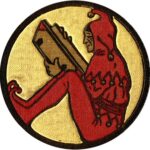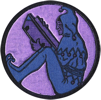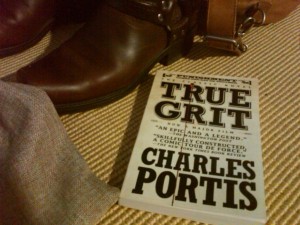
 “Pierce film to vent.”
“Pierce film to vent.”
But, I’m not angry about anything, Microwave Dinner.

 “Pierce film to vent.”
“Pierce film to vent.”
But, I’m not angry about anything, Microwave Dinner.
 ho’iden. An ill-taught awkward country girl.
ho’iden. An ill-taught awkward country girl.
to ho’iden. To romp indecently.
– Johnson’s Dictionary: A Modern Selection by Samuel Johnson (1755), ed. E. L. McAdam and George Milne (1963)

 Portland’s Microcosm Publishing store is offering to trade unwanted, Christmas-given Kindles for their value in new or used books and magazines of the paper variety.
Portland’s Microcosm Publishing store is offering to trade unwanted, Christmas-given Kindles for their value in new or used books and magazines of the paper variety.
The silly, pseudoliterary pretense of the ad had me in stitches.
Continue reading

 My question about the film clip below: Why would orcs even have the concept of “menu”? Were there a lot of tablecloth restaurants in orc society? Did you have to ask to see the orc wine menu, or was it provided along with the brunch, dinner, and dessert menus?
My question about the film clip below: Why would orcs even have the concept of “menu”? Were there a lot of tablecloth restaurants in orc society? Did you have to ask to see the orc wine menu, or was it provided along with the brunch, dinner, and dessert menus?

 SCENE: Washington, DC. The Green Line Metro train has been waiting five to ten minutes at each station during the crowded morning commute.
SCENE: Washington, DC. The Green Line Metro train has been waiting five to ten minutes at each station during the crowded morning commute.
Metro announcer: “Passengers, please be advised that there is a sick passenger on board a train ahead of us at the U Street station.”
Metro passenger on my train: “Yeah? You should be advised that there’s a hundred passengers sick of being on board this train at this station!”

 People do not give it credence that a book of great literary merit could slip out of print, or that a strong narrative voice could be sidelined because she had the unfortunate luck (in the eyes of modern realist snoots) to hail from Yell County, Arkansas, in the late 19th century.
People do not give it credence that a book of great literary merit could slip out of print, or that a strong narrative voice could be sidelined because she had the unfortunate luck (in the eyes of modern realist snoots) to hail from Yell County, Arkansas, in the late 19th century.
Yet, having read such a book narrated by such a voice, I find myself in agreement with Roald Dahl’s assessment of it (as quoted by Donna Tartt, in her afterword to the book she remembers studying alongside Whitman, Poe, and Hawthorne in honors English during the 1970s before it slipped into a dark pit of obscurity):
I was going to say it was the best novel to come my way since … Then I stopped. Since what?
“Since what” indeed. And I, my friends, have read a lot of damn books.

 From the classic novel True Grit
From the classic novel True Grit by master of understated humor Charles Portis (in the voice of the narrator Mattie Ross opining on the state of publishing):
 Cat Wagons. These were mobile bordellos that traveled to mining towns, construction jobs and groups of cowboys on the range. A madam would load up her girls and take them to a site where they would ply their trade.
Cat Wagons. These were mobile bordellos that traveled to mining towns, construction jobs and groups of cowboys on the range. A madam would load up her girls and take them to a site where they would ply their trade.
– Prostitute Dictionary of the Old West by Jay Moynahan.
 fallow1 [Old English] In Old English the verb fealgian meant ‘to break up land for sowing’. Of Germanic origin, the word is related to Low German falgen. The sense now is ‘leave unsown’ referring to land which has been ploughed and harrowed.
fallow1 [Old English] In Old English the verb fealgian meant ‘to break up land for sowing’. Of Germanic origin, the word is related to Low German falgen. The sense now is ‘leave unsown’ referring to land which has been ploughed and harrowed.
fallow2 [Old English] Germanic in origin, Old English falu, fealu is related to Dutch vaal and German fahl, falb. Describing the colour pale brown or reddish yellow, it is now most commonly found in the word fallow deer, a Eurasian deer which has a reddish-brown coat in the summer.
– The Oxford Dictionary of Word Histories by Glynnis Chantrell

 You might have heard that different types of creative writing require different approaches: what makes a good novel isn’t the same as what makes a good short story, a good poem, or a good film.
You might have heard that different types of creative writing require different approaches: what makes a good novel isn’t the same as what makes a good short story, a good poem, or a good film.
While this is certainly true, I think the distinctions between different forms of creative writing are over-emphasized. Despite differences in presentation, length, and form there is a lot in common among different forms of art, particularly in terms of process, and a lot that can be learned across boundaries.
In this context, let’s discuss what fiction writers can learn from music and movies in regard to revision suggestions from first readers, agents, and editors.